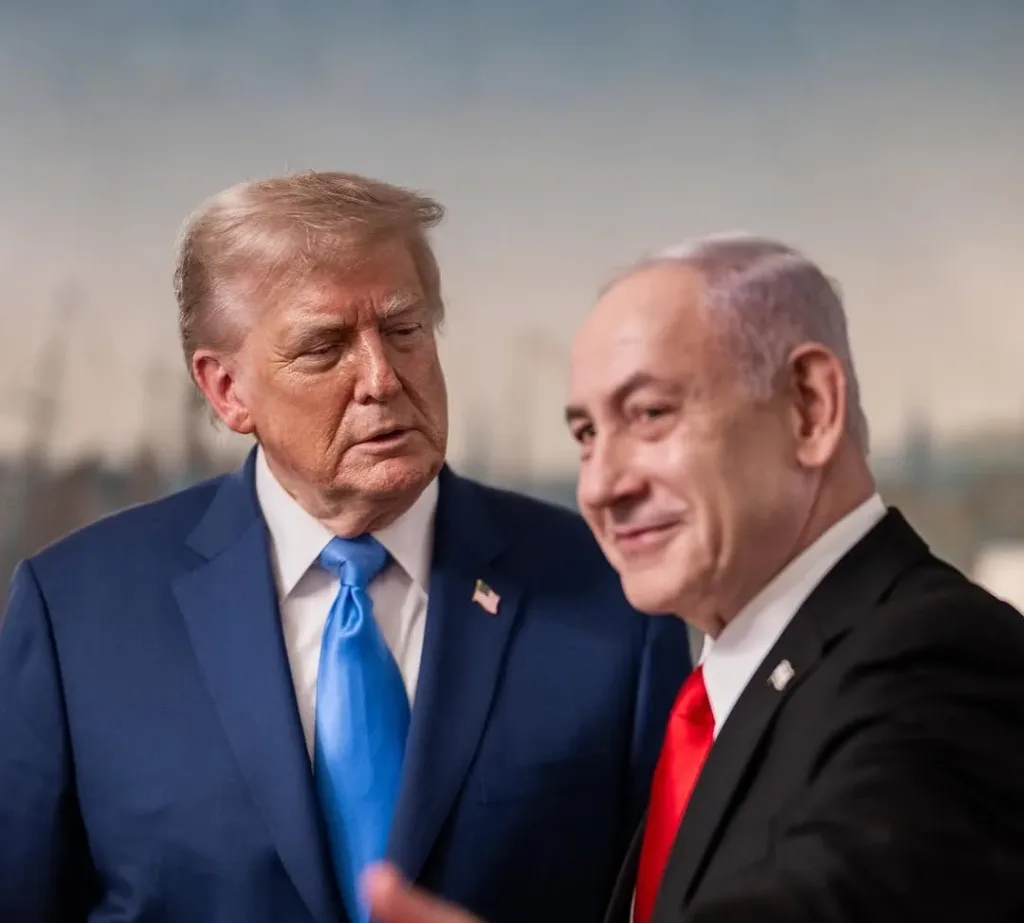
Netanyahu shares a good personal relationship with Trump/White House
Netanyahu hailed Trump for his efforts towards bringing peace to the Middle East.
Benjamin Netanyahu presented Donald Trump with a Nobel Peace Prize nomination letter during their Monday White House meeting, commending the president’s Middle East peace initiatives.
The encounter represented their first face-to-face discussion since American forces targeted Iran’s nuclear infrastructure amid a brief Israeli-Iranian military confrontation.
Trump was expected to push for Netanyahu’s acceptance of a Gaza ceasefire agreement, as international pressure mounts over the humanitarian crisis from Israel’s 21-month Hamas conflict, which has claimed nearly 60,000 lives, mostly Palestinians.
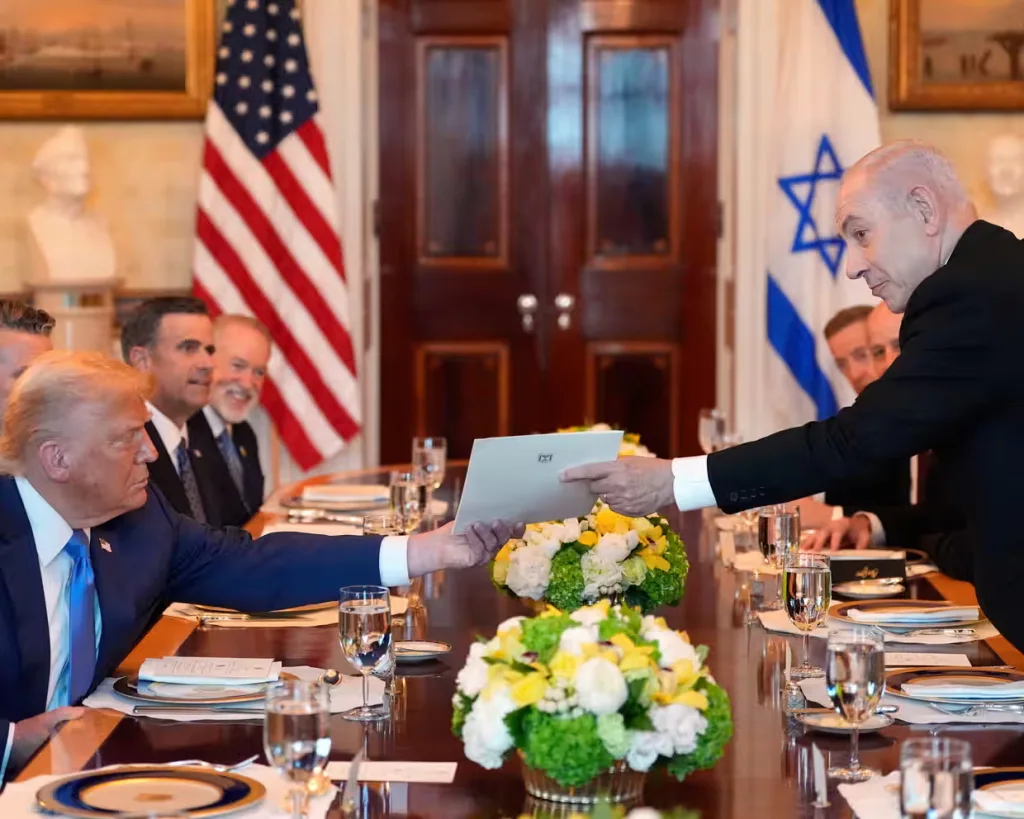
Indirect negotiations between Israeli and Hamas representatives resumed in Qatar on Monday after a six-week hiatus. While both sides expressed cautious optimism about potential ceasefire terms, major sticking points remain unresolved, particularly regarding Israeli guarantees to end the war permanently and Netanyahu’s requirement that Hamas be permanently expelled from Gaza.
Related: ICC Issues Arrest Warrant For Israeli Prime Minister Benjamin Netanyahu
When reporters questioned Trump about potential forced Palestinian evacuation from Gaza—following reports of Israeli plans to relocate all Palestinians to a Rafah camp site that critics call ethnic cleansing—Trump referred the question to Netanyahu.
“It’s called free choice,” said Netanyahu, who is wanted by the international criminal court for alleged war crimes relating to the Gaza war.
“You know, if people want to stay, they can stay, but if they want to leave, they should be able to leave.”
“It shouldn’t be a prison,” Netanyahu said.
“It should be an open place and give people a free choice. We’re working with the United States very closely about finding countries that will seek to realize what they always say they wanted – to give the Palestinians a better future. And … I think we’re getting close to finding several countries.”
The Israeli leader opened their Blue Room dinner by delivering his nomination letter to Trump.
“I want to express the appreciation and admiration not only of all Israelis, but of the Jewish people,” Netanyahu said before presenting the letter.
“You deserve it,” Netanyahu added.
“Coming from you in particular, this is very meaningful,” Trump said.
Pakistan previously nominated Trump for the prize last month, making this his second high-profile recommendation.
Regarding Iran, Trump expressed hope that further American military strikes wouldn’t be necessary, stating he “hoped” that the US would not strike Iran again.
“They want to work something out,” he said.
“They’re very different now than they were two weeks ago.”
Trump avoided setting a timeline for Iranian diplomatic talks but promised reporters would learn more details the next day.
On Ukraine’s war with Russia, Trump signaled he would restart weapons transfers to Ukrainian forces, despite recent Pentagon confirmation that some shipments had been suspended due to concerns about America’s declining munitions stockpiles.
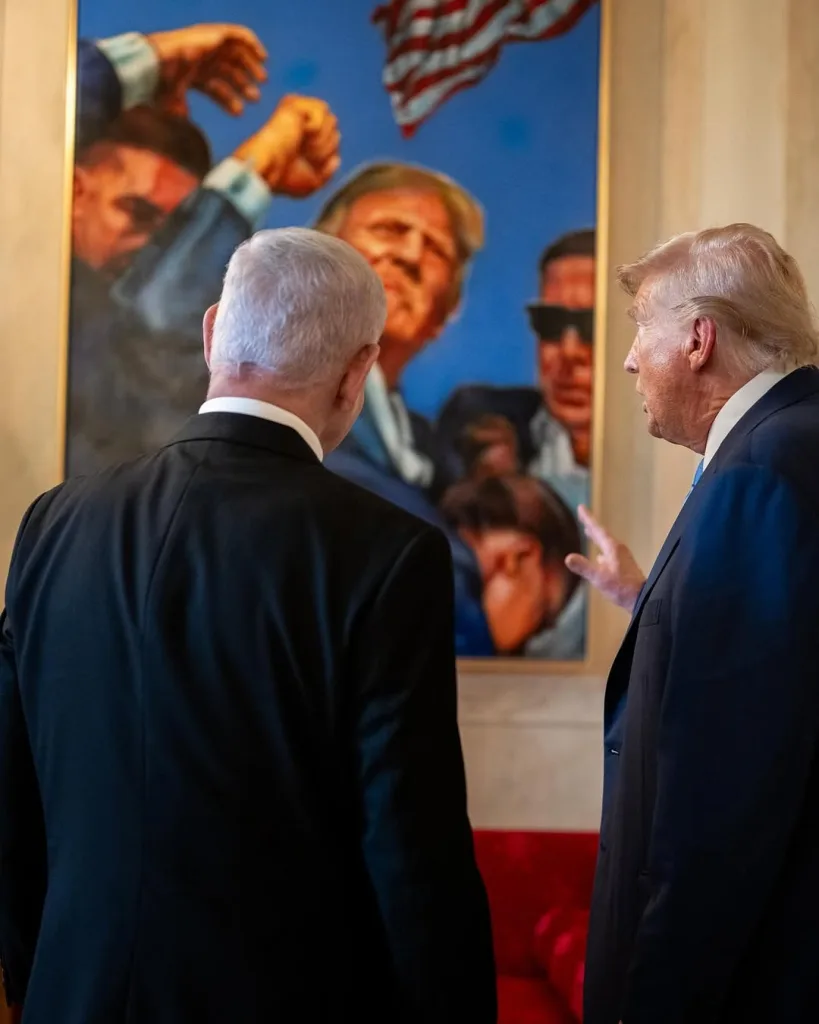
Speaking spontaneously, Trump criticized Putin’s actions: “not happy with president Putin at all.”
“I’m disappointed, frankly, that President Putin hasn’t stopped,” he said.
“I’m not happy about it.”
“We’re going to send some more weapons” to Ukraine, he continued.
“We have to. They have to be able to defend themselves. They’re getting hit very hard now. They’re getting hit very hard. We’re going to have to send more weapons.”
Trump claimed Hamas “want to meet and they want to have that ceasefire” but offered no additional ceasefire preparation details.
When asked about Palestinian statehood, he again deferred to Netanyahu, who restated Israel’s position on maintaining “security guarantee” over territories including Gaza.
“I think the Palestinians should have all the powers to govern themselves, but none of the powers to threaten us,” Netanyahu said.
“And that means that certain powers like overall security will always remain in our hands.”
“I think we can work out a peace between us and the entire Middle East with President Trump’s leadership and by working together,” he continued.
“I think we can establish a very, very broad peace that will include all our neighbours.”
Before leaving for Washington Sunday, Netanyahu expressed confidence about reaching a deal, saying Israeli negotiators had received specific instructions to secure a ceasefire within Israel’s previously accepted conditions.
Prime ministerial sources described the Qatar discussions positively, according to Israeli military radio and Reuters-cited Israeli officials.
Palestinian representatives were less encouraged, saying Sunday’s preliminary meetings ended without progress.
Netanyahu had earlier met Monday with Middle East envoy Steve Witkoff and Secretary of State Marco Rubio.
His Washington schedule includes upcoming meetings with Vice President JD Vance and other senior officials, including House Speaker Mike Johnson.

 Tiwa Savage Launches Foundation To Support African Music Creatives
Tiwa Savage Launches Foundation To Support African Music Creatives 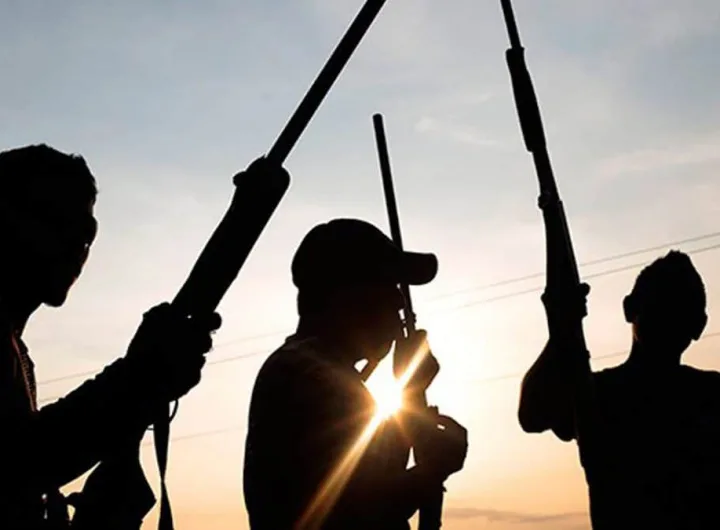 Gunmen Kidnap Six Church Members In Ondo State
Gunmen Kidnap Six Church Members In Ondo State 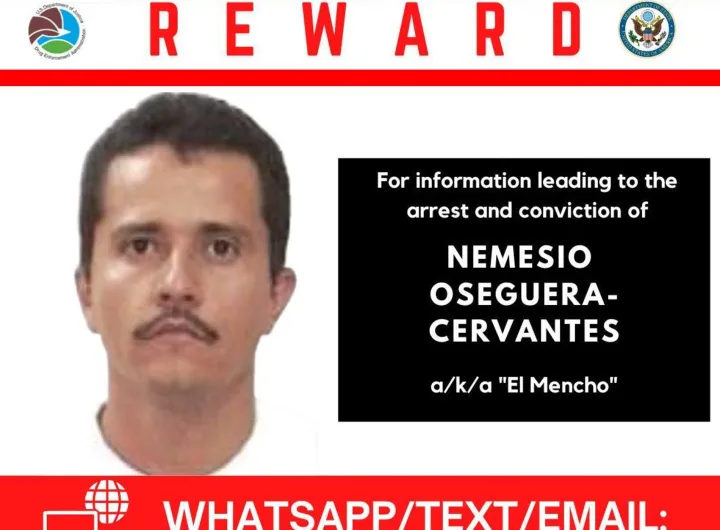 Violence Grips Mexico Following Death Of Drug Lord “El Mencho”
Violence Grips Mexico Following Death Of Drug Lord “El Mencho” 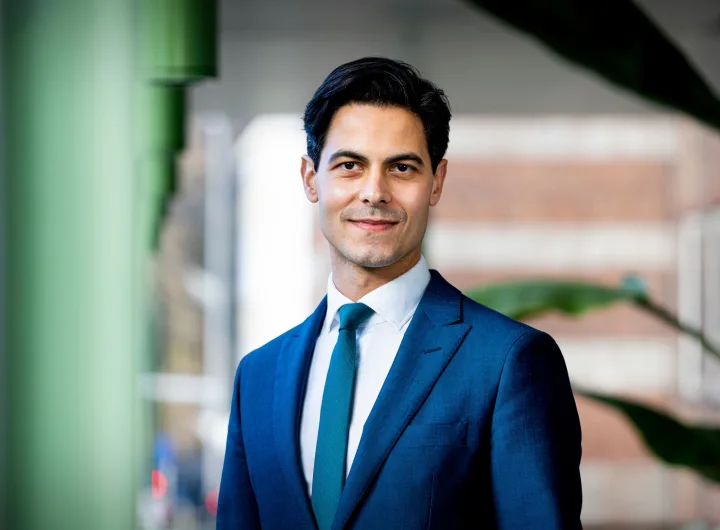 Netherlands Swears In First Openly Gay Prime Minister
Netherlands Swears In First Openly Gay Prime Minister  US Military Aircraft Land In Nigeria With Troops
US Military Aircraft Land In Nigeria With Troops  Tems Becomes First African Woman To Break Billboard Record
Tems Becomes First African Woman To Break Billboard Record